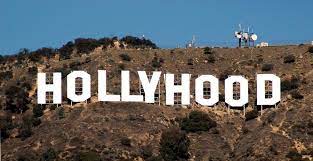Hollywood's actors union decided to approve a strike in the event of failed contract negotiations, increasing pressure on major film and television companies already dealing with a month-long writers' strike.
SAG-AFTRA reported that 97.91% of ballots cast backed a strike authorization after voting ended on Monday. 48% of eligible members, or just under 65,000, cast ballots for the initiative.
"Bravo SAG-AFTRA. We are in it to win it," Fran Drescher, the union's president, said in a statement.
Did you read this?
The largest union in Hollywood, with 160,000 members, and the major studios are set to begin negotiations on Wednesday.
There are no upcoming negotiations with the 11,500 film and television writers who are on strike and represented by the Writers Guild of America (WGA). Their strike has halted late-night programming and a number of high-profile projects, including the upcoming seasons of "Stranger Things" on Netflix and a "Game of Thrones" spinoff for HBO, both of which are owned by Warner Bros Discovery (WBD.O).
The studios probably avoided a second work stoppage over the weekend by coming to a tentative agreement with the Directors Guild of America (DGA). If DGA members decide to ratify that agreement in the upcoming weeks, it will go into effect.
With the actors, "we are approaching these negotiations with the goal of achieving a new agreement that is beneficial to SAG-AFTRA members and the industry overall," said the Alliance of Motion Picture and Television Producers, which represents Walt Disney Co (DIS.N), Netflix Inc (NFLX.O) and other studios.
If actors were to initiate a strike, it would have far-reaching consequences, resulting in a widespread shutdown throughout Hollywood. This would amplify the pressure on studios, who rely on continuous programming to support their streaming services and the upcoming fall TV broadcast schedule.
During the negotiation process, actors are advocating for increased compensation and protective measures to prevent unauthorized use of their images via artificial intelligence. The existing agreement between actors and the industry is set to expire on June 30, further emphasizing the urgency and significance of these discussions.
Leaders of SAG-AFTRA claimed that the introduction of new technologies like generative AI and the rise of streaming television had drastically altered the industry.
According to chief negotiator Duncan Crabtree-Ireland the coming talks may be one of the most consequential negotiations in the union's history.
"Inflation, dwindling residuals due to streaming, and generative AI all threaten actors' ability to earn a livelihood if our contracts are not adapted to reflect the new realities," he added.











